

Prof Brian Kirby
Professor Brian Kirby is Consultant Dermatologist at St Vincent’s University Hospital, Dublin, Ireland, and Full Clinical Professor at University College Dublin, Ireland.
Professor Kirby’s clinical and research interests include psoriasis and hidradenitis suppurativa. He is co-Chair of the Dublin Hidradenitis Suppurativa Research Group and a Principal Investigator at the Charles Institute of Dermatology at University College Dublin.
Professor Kirby is also a former member of the steering committee of British Association of Dermatologists Biologics and Immunomodulatory Register (BADBIR), a member of the International Psoriasis Council (IPC), a member of the scientific committee of the European Hidradenitis Suppurativa Foundation (EHSF) and Chairperson of the Clinical Advisory Group of Dermatology at the Royal College of Physicians of Ireland.
He has authored or co-authored more than 250 publications, the majority of which are on psoriasis and hidradenitis suppurativa. Additionally, he is Associate Editor of the British Journal of Dermatology and Dermatology.
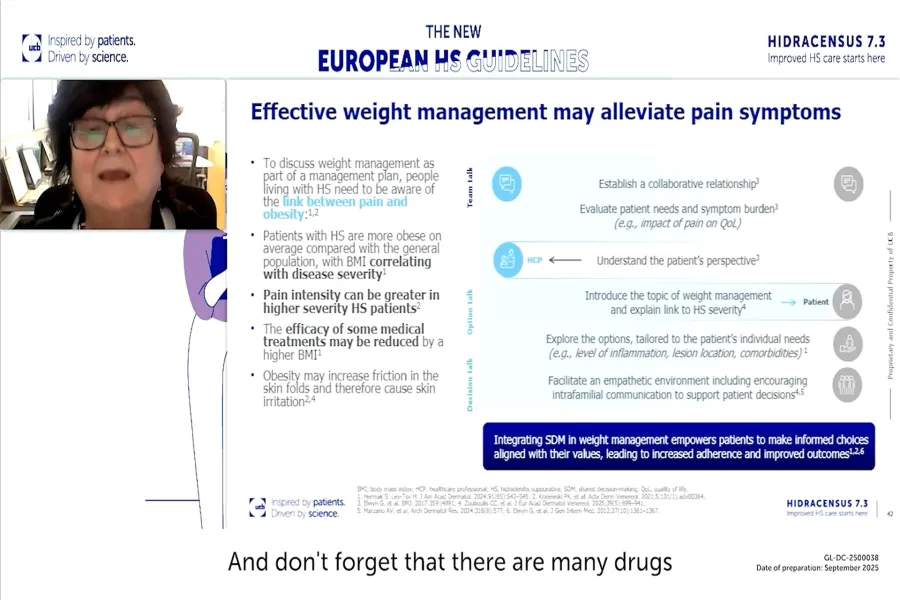
Exploring how the guidelines defines holistic care
Integrating holistic care through guideline recommendations with patient-reported outcomes and shared decision-making
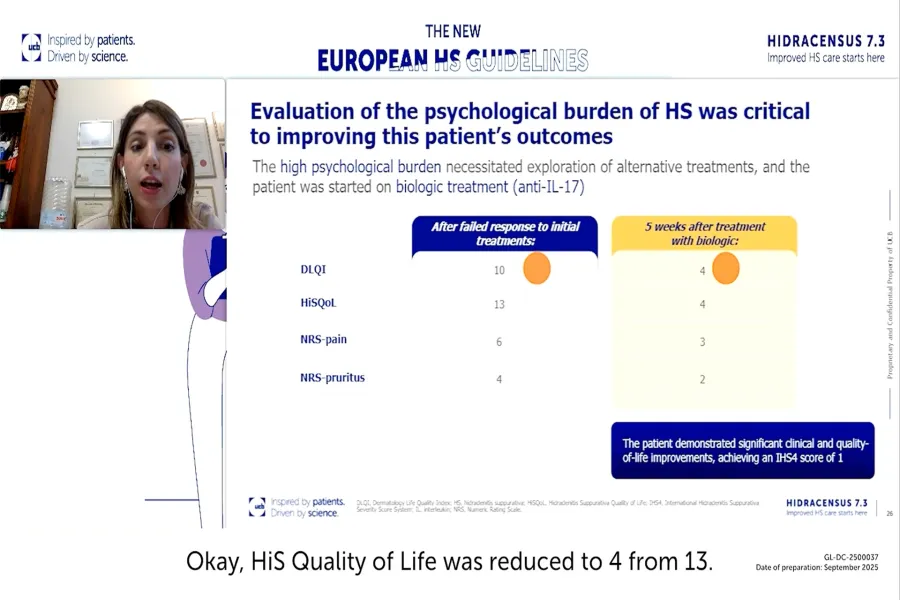
Personalising the approach to HS care
Personalised HS care: Addressing the multi-faceted burden of HS with a case study example
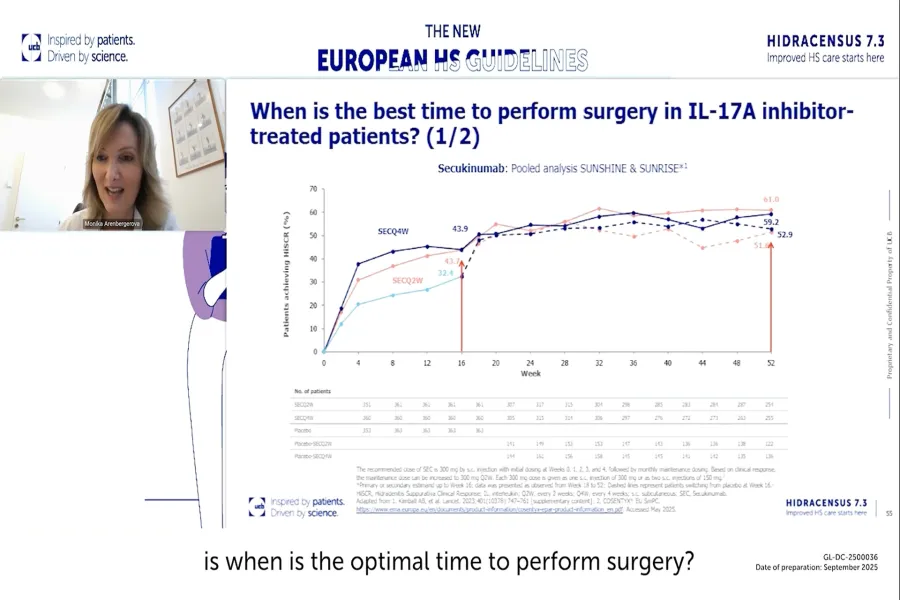
Combination approaches in HS
The role of combined medical/surgical and medical-only treatments, including the optimal time for intervention
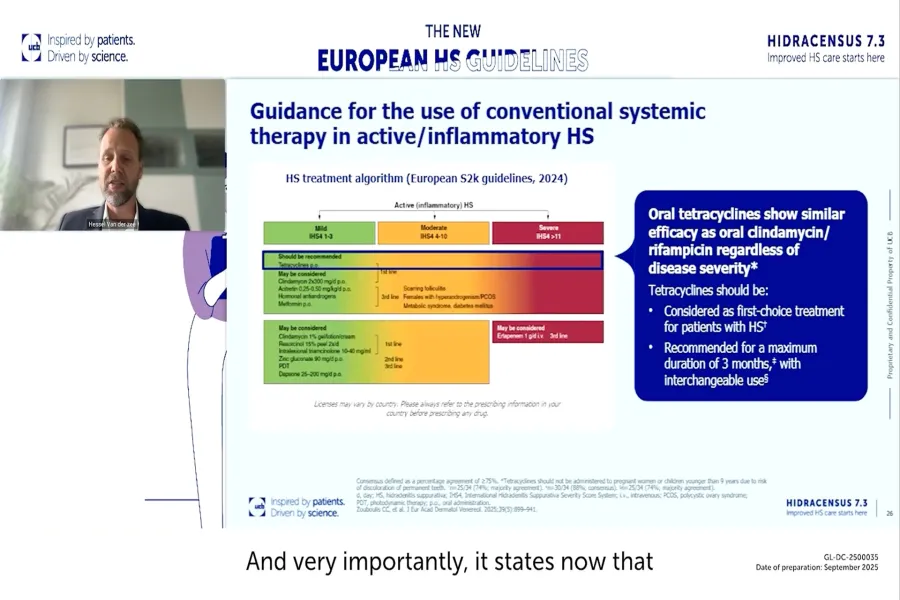
An overview of the European S2k guidelines
Key guideline updates including management algorithms for inflammatory and non-inflammatory HS phenotypes
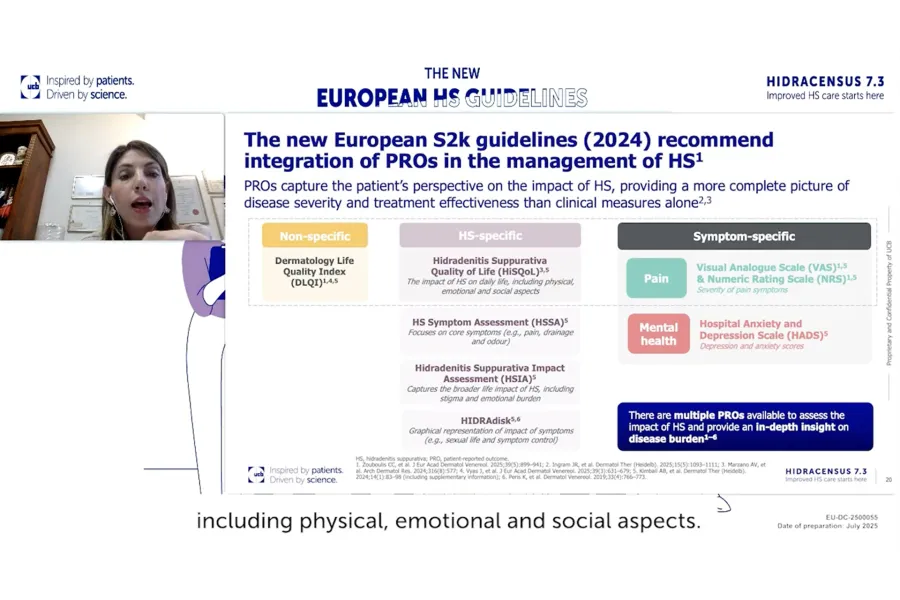
Shared decisions: Redefining HS treatment
Prof. Prignano and Prof. Liakou discuss patient-reported outcomes, shared decision-making and multidisciplinary HS care
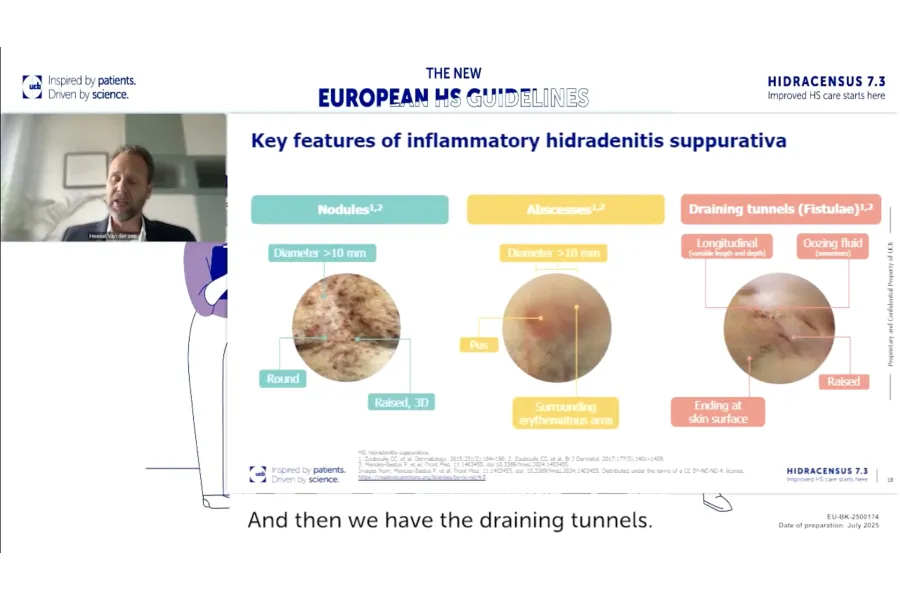
From guidelines to action: Transforming HS treatment pathways
Dr van der Zee and Prof. Arenbergerová explore holistic treatment of HS through medical, surgical and combined approaches